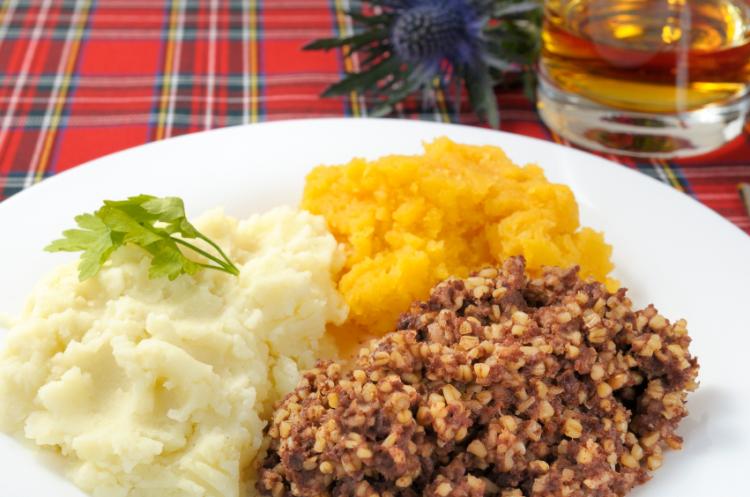Burns Night is annually celebrated in Scotland on or around January 25. It commemorates the life of the bard (poet) Robert Burns, who was born on January 25, 1759. The day also celebrates Burns' contribution to Scottish culture. His best known work is Auld Lang Syne.
Is Burns Night a Public Holiday?
Burns Night is not a public holiday. It falls on суббота 25 январь 2020 г. and most businesses follow regular суббота opening hours in the United Kingdom.

What Do People Do?
Many people and organizations hold a Burns supper on or around Burns Night. These may be informal or formal, only for men, only for women, or for both genders. Formal events include toasts and readings of pieces written by Robert Burns. Ceremonies during a Burns Night supper vary according to the group organizing the event and the location.
The evening centers on the entrance of the haggis (a type of sausage prepared in a sheep's stomach) on a large platter to the sound of a piper playing bagpipes. When the haggis is on the table, the host reads the "Address to a Haggis". This is an ode that Robert Burns wrote to the Scottish dish. At the end of the reading, the haggis is ceremonially sliced into two pieces and the meal begins.
Public Life
Burns Night is an observance but it is not a bank holiday in the United Kingdom.
Background
Robert Burns was born in Alloway, Scotland, on January 25, 1759. He died in Dumfries, Scotland, on July 21, 1796. He was a bard(poet) and wrote many poems, lyrics and other pieces that addressed political and civil issues. Perhaps his best known work is "Auld Lang Syne", which is sung at New Year's Eve celebrations in Scotland, parts of the United Kingdom, and other places around the world. Burns is one of Scotland's important cultural icons and is well known among Scottish expats or descendants around the world. He is also known as: "Rabbie Burns"; the "Bard of Ayrshire"; "Scotland's favorite son"; and in Scotland "The Bard".
Robert Burns acquaintances held the first Burns supper on July 21, the anniversary of his death, in Ayrshire, Scotland, in the late 1700s. The date was later changed to January 25, which marks his birthday. Burns suppers are now held by people and organizations with Scottish origins worldwide, particularly in Australia, Canada, England, and the United States.
Symbols
The Scottish flag is often displayed at Burns Night celebrations. It is known as the Saltire and consists of a rectangular blue background with thick white bars on the diagonals. The diagonals form a cross that represents Saint Andrew, the patron saint of Scotland.
At Burns Night events, many men wear kilts and women may wear shawls, skirts or dresses made from their family tartan. A tartan was originally a woolen cloth with a distinctive pattern made by using colors of weft and warp when weaving. Particular patterns and combinations of colors were associated with different areas, clans and families. Tartan patterns are now printed on various materials.
Many types of food are associated with Burns Night. These include: cock-a-leekie soup (chicken and leek soup); haggis; neeps (mashed turnips or swedes) and tatties (mashed potatoes); cranachan(whipped cream mixed with raspberries and served with sweet oat wafers); and bannocks (a kind of bread cooked on a griddle). Whisky is the traditional drink.
Комментариев нет:
Отправить комментарий